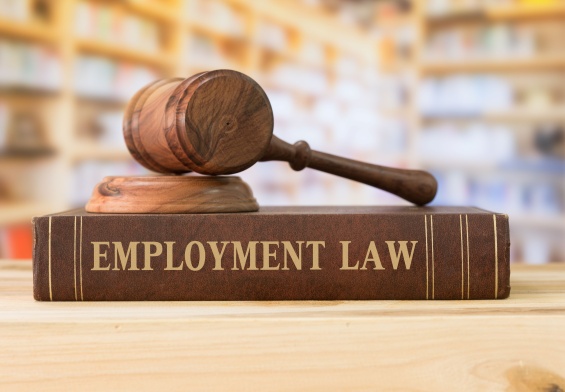Workers are currently protected against many forms of discrimination by employment laws. Whether you are entering the job market for the first time or were recently terminated, it is important to understand your rights as a worker. The Civil Rights Act of 1964 and subsequent legislation makes it illegal to treat workers differently based on ethnicity, religious beliefs, gender age, or disability.
What is Employment Law?
Employment laws were put in place to protect workers from wrongdoing by their employers. Both federal and state governments have enacted a wide range of employment laws protecting employees from discriminatory treatment, unfair labor practices, unsafe work conditions, and more. Employment law governs the rights and duties between employers and workers. Also referred to as labor law, these rules are primarily designed to keep workers safe and make sure they are treated fairly, although laws are in place to protect employers’ interests as well.
Employment Laws and Issues
There are a wide range of situations that can lead to employment law issues. One of the most common circumstances occurs when an employee is fired for an illegal reason. Below are a few employment laws and issues:
- Discrimination and harassment at your job. Discrimination, harassment, and unfair treatment by managers, co-workers, or others in the workplace because of race, color, religion, sex (including gender identity, transgender status, and sexual orientation), pregnancy, national origin, age, disability, or genetic information. Denial of a reasonable workplace accommodation for disability or religious beliefs. Retaliation because they complained about job discrimination, or helped with a job discrimination investigation.
- Employment Background Checks. Local, state, or federal government agencies and private employers may perform background checks when they hire an employee.
- Family and Medical Leave Act. The Family and Medical Leave Act is a federal labor law that allows an eligible employee to take an extended leave of absence from work due to: illness, caring for a qualifying sick family member, the birth or adoption of a child, or military caregiving or other emergencies related to a family member’s active duty service. The unpaid leave is guaranteed by law and is available to workers at companies with 50 or more employees.
- Labor Unions. A labor union or trade union is an organization of workers which bargains with employers on behalf of union members and negotiates labor contracts. Elected union leaders negotiate specific items of employment including: pay and benefits, complaint procedures, hiring and firing guidelines, or help with unfair labor practices. Agreements union leaders negotiate are binding on the union members, the employer, and in some cases, on other non-union workers.
- Minimum wage, overtime, and misclassification. The U.S. Department of Labor’s Wage and Hour Division administers and enforces some of the nation’s most comprehensive labor laws, including: minimum wage, overtime, and misclassification.
- Unsafe workplace complaints and conditions. As an employed worker, you’re entitled to certain rights in the workplace – especially ones that keep you safe. Including the right to: be trained in a language that you understand, be provided with the necessary safety equipment, report injury or illness, and voice your concern over unsafe working conditions without fear of retaliation.
- Workers compensation laws protect the rights of employees and employers when a worker is injured on the job. These laws: ensure that employees who are injured or disabled on the job receive fixed payments, provide benefits for dependents of workers who died due to work-related accidents or illnesses, and protect employers and fellow workers by limiting the amount an injured employee can recover an employer and by removing the co-workers’ liability in most accidents.
- Wrongful discharge/termination of employment.
- Youth labor laws. If you are under 18 and want to get a job it is important to know what rights and restrictions you have as a worker. Youth labor laws are designed to protect you from unsafe and inappropriate work experiences and to make sure that your job doesn’t interfere with your schooling.
What You Should Do?
If you feel that you are being discriminated or treated unfairly in your workplace you should seek an employment attorney to help advise you. You should not delay in contacting an attorney. If you delay contacting an attorney, you will not know what you may be able to do to prevent your situation from worsening and you may not properly document events as they occur. Because it is your burden to prove an illegal motive, such as discrimination or retaliation, you must document the evidence that supports your claims. If you fail to document events as they happen, later you may not have the evidence necessary to prove your case.
Employment Lawyers in New Jersey
The National Employment Lawyers Association (NELA) advances employee rights and serves lawyers who advocate for equality and justice in the American workplace. NELA is a specialty bar association for those attorneys in the legal profession who exclusively or primarily represent works in employment disputes. NELA provides help and support to lawyers protecting the rights of workers through networking, educational programs, publications and technical assistance. The attorney members of NELA-NJ represent plaintiffs in employment cases and help enact important legislation to protect employees throughout New Jersey.




